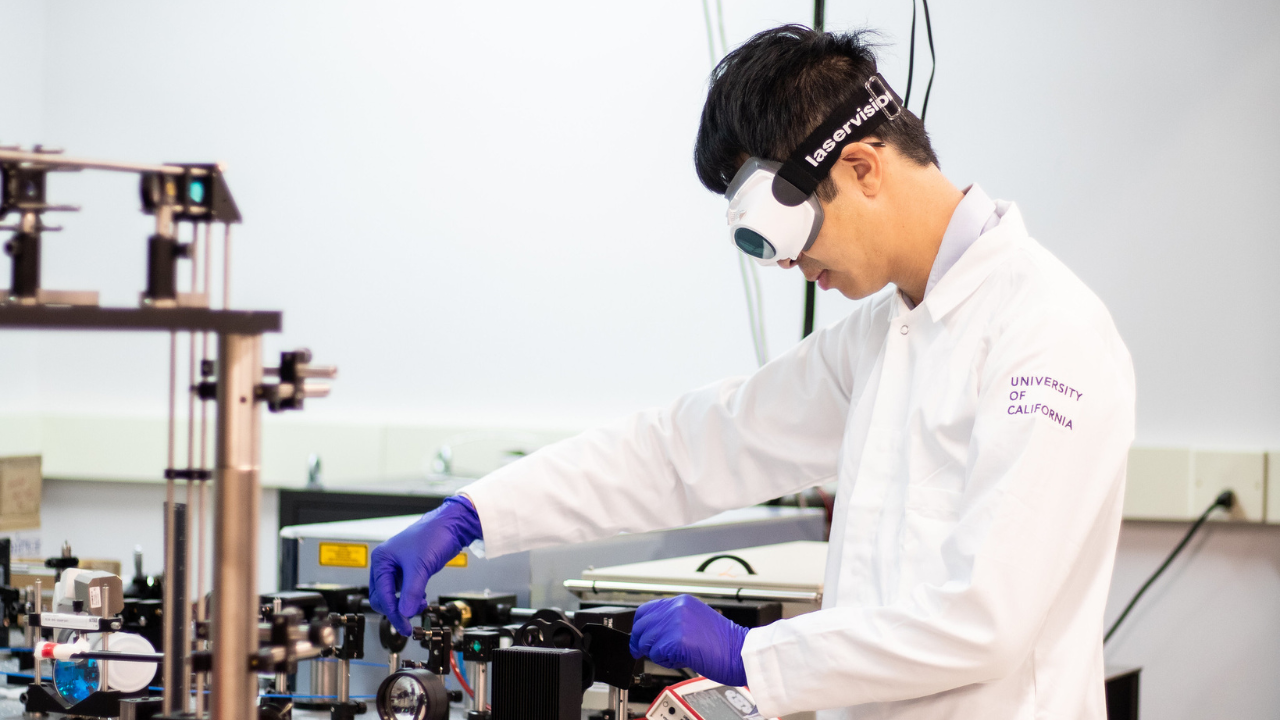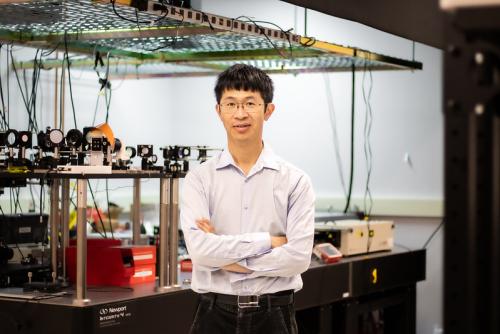
Research in Action: Weijian Yang Advances Optical Methods and Neurotechnologies
Yang lab focuses on interdisciplinary research in electrical and computer engineering, biomedical engineering and neuroscience
Electrical and Computer Engineering Associate Professor Weijian Yang’s goal is to decode how the brain works in various processes, such as learning and memory formation, through the development of advanced optical methods and neurotechnologies to record and modulate brain activity. Additional interdisciplinary research has applications in biomedical imaging and smart health.
Yang, a 2019 recipient of a prestigious National Science Foundation Faculty Early Career Development (NSF CAREER) Award, and his lab are currently focused on building high throughput two-photon microscopes for functional brain imaging.
"Two-photon microscopy has been one of the important tools for neuroscience, but it has a low imaging speed," said Yang. "We are developing advanced optics and imaging processing algorithms to enhance the imaging speed and the overall performance."
Funded by a $1.45M National Institutes of Health Brain Initiative grant awarded in 2020, Yang’s lab is developing a two-photon endoscope to observe neurons in freely moving animals like mice. The goal is to create a tool that can capture images at high speed over a large field of view to observe the brain activity while the mouse behaves freely.
"We want to study the brain during the mice's natural and social behavior," Yang said. "We'll place a tiny microscope on a mouse's head while the freely-moving mouse is solving puzzles. We'll be able to observe their brains in action, study how they learn and investigate how their memory is formed."
Yang’s lab is also developing computational imaging technologies and applying them for biomedical imaging. One of their ongoing projects is to create a thin and compact 3D camera that is suitable for high-resolution imaging over a large tissue volume. Yang also does research in the area of smart health and is collaborating with ECE Professor Soheil Ghiasi to develop a transabdominal fetal pulse oximeter to more accurately determine fetal oxygen levels and prevent unnecessary cesarean sections during labor.

Yang earned tenure in 2022 in recognition of his excellence in research, teaching and service to the professional community and the university. In 2021, he was a finalist for the Science & PINS Prize for Neuromodulation for his contribution in holographic optogenetics with his essay, “Manipulating Neuronal Circuits, in Concert,” published in Science. Also in 2021, he received the Best Teaching Award in the UC Davis Department of Electrical and Computer Engineering.
"Professor Yang’s research is highly multidisciplinary and innovative, spanning several areas in electrical and computer engineering," said Andre Knoesen, department chair and Distinguished Professor of Electrical and Computer Engineering. "After receiving his Ph.D., he has boldly launched into neuroscience where his work on multiphoton neuroimaging aided by computational imaging has quickly attracted international recognition. He is also an outstanding and popular teacher."
With expertise in both engineering and neuroscience, Yang is eager to contribute to an interdisciplinary field with new tools to tackle complex challenges in brain research.
"Our brain is perhaps the most sophisticated masterpiece in the universe, and we are already getting glimpses of how it works," Yang said. "With collaborative efforts, our innovative research across science and engineering can make contributions to unravel the working principle of the entire brain."

